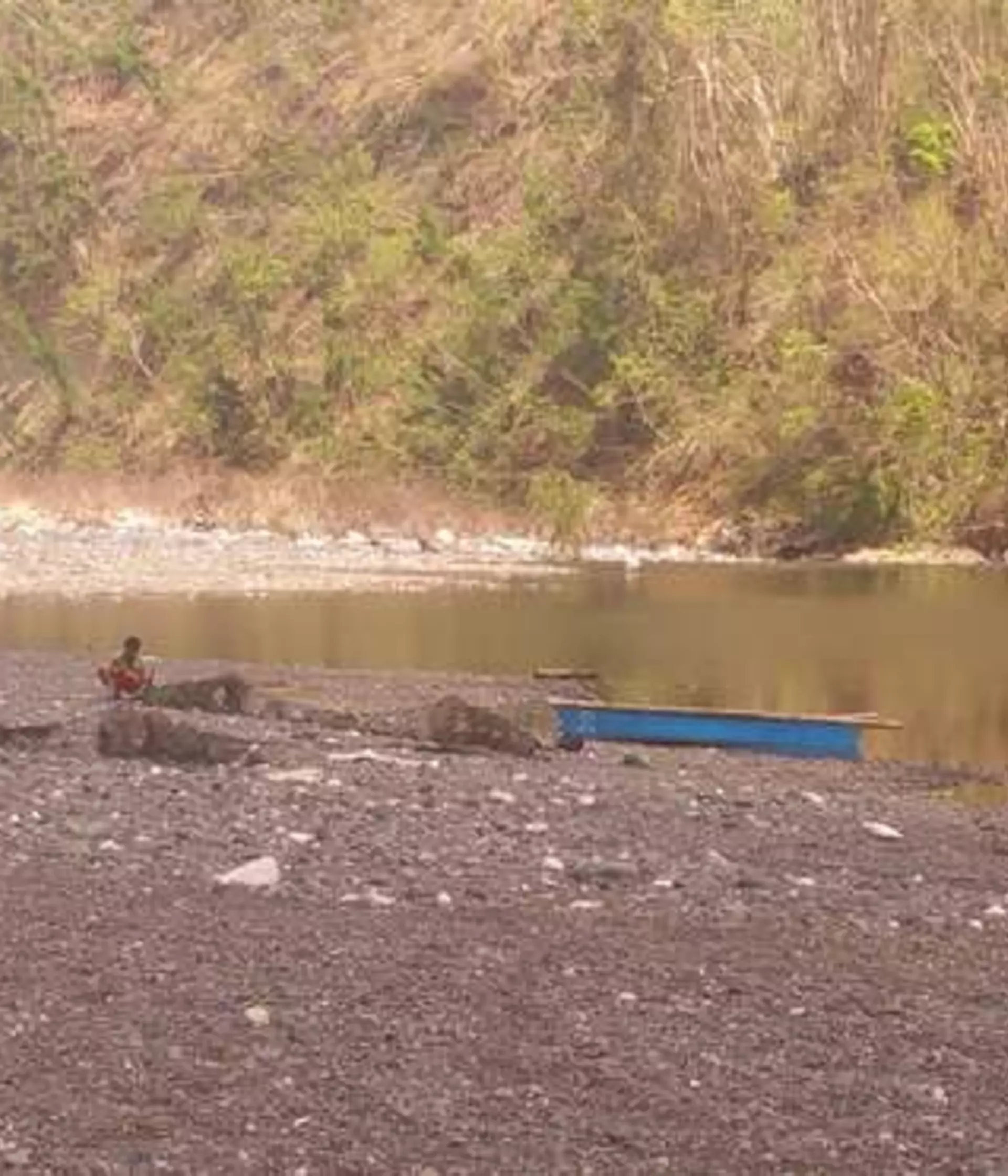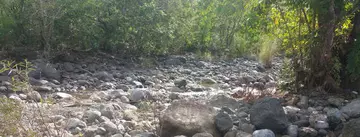
Dr. Adam Piper
Research Fellow
Dr Adam Piper, postdoctoral research Associate at the Institute of Zoology, working with in-country staff from the ZSL Freshwater eel conservation project in the Philippines.
Monitoring eel behaviours and the importance of fish sanctuaries
For the second time this year (2019) I went out to join the ZSL Philippines team based at our offices in Tuguegarao, North Luzon island, and was later joined by my colleague Dr Matthew Gollock (Marine and Freshwater Programme Manager, ZSL Conservation Programmes). The purpose of this trip was to carry out maintenance on the telemetry array we had installed earlier in the year with the hope to download lots of detection data from the previously tagged eels. We also planned to tag a second group of eels in each of the sites. This telemetry work will give us a unique insight into the behaviour of these species and enable us to determine how much and when eels use the fish sanctuaries we have established in the region. This will provide us with valuable knowledge for assessing the potential of these protected no-fishing zones to help conserve the species.
Preparation of equipment and logistics had begun months beforehand and we hoped we’d planned for all eventualities. Then, just a few weeks before we were due to fly out and join the ZSL team in the Philippines, the powerful tropical cyclone Mangkhut's (also known as Ompong) made landfall in Baggao, Cagayan province, on northeast Luzon island in the early hours of 15th September. The wind that reached speeds of 200 km/h, gusting to 330 km/h, and heavy rain caused a huge amount of destruction including major landslides.
After the storm
The cyclone-affected area encompassed all of our study sites, where, just days before it hit, the ZSL Philippines team had already begun surveys in preparation for our visit. In the aftermath of such a terrible event it felt inappropriate to be expecting the team and the local volunteers to continue with our expedition plans, but everybody was keen to get back to normal life and continue work. So, we began the task of trying to find and retrieve our equipment from the river.
Though all may appear calm in the photos, there were car-sized boulders that, since our previous visit, had been moved many metres downstream by the force of the floods. Some sections of the river had completely changed course and diverted down new channels, leaving the former main channel, and our receivers within it, virtually high and dry (Figure 1). In other locations, despite attaching our receivers to weights >100kg that had required six people to manoeuvre them into place, some had been moved several hundred metres downstream by flood waters.

A good proportion of the receivers were successfully recovered, downloaded and re-deployed, but this time with larger weights and additional safety cables tethered to nearby cliffs or large rocks in the channel (Figure 2). The recovery and redistribution of the array equipment replaced time originally allotted for eel tagging, but thanks the indefatigable effort of the ZSL Philippines staff and local volunteers we also managed to PIT and acoustically tag two species of eel: Anguilla marmorata and Anguilla bicolor.
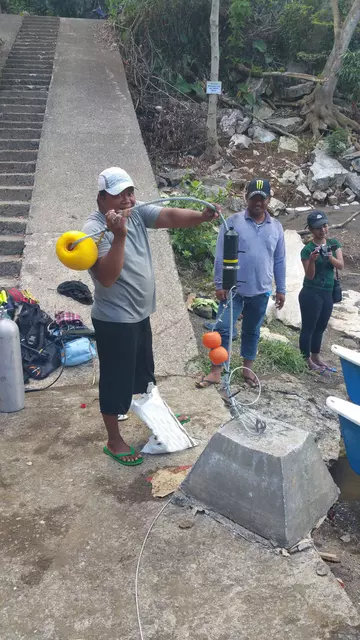
Learning from people who live and work on rivers – the old ways can be the best!
The ZSL team worked closely with local communities, fisherfolk, and wardens at the Fish Sanctuaries during fyke netting to capture eels to be measured and tagged (Figure 3). Despite our team having a lot of previous experience fishing for eels in a range of habitats, and excellent equipment at our disposal, some of the best capture successes resulted from an old fishing method shown to us by the ex-barangay (village) captain. He took us to a place in the river where the channel splits and years ago fishermen used to move boulders to divert most of the flow down one channel, thereby creating just the right funneling flow in the other to guide the eels into nets. Although this all seemed a bit far-fetched, we were keen to increase our capture rate so, with lots of help from the locals, gave it a try and sure enough the catch increased by 80% that night.
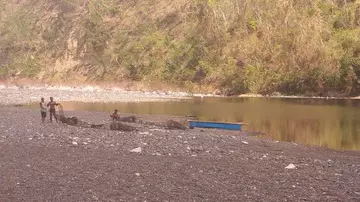
Through the great efforts of the ZSL team and local volunteers, we were able to successfully tag a further 24 eels bringing the total number of tagged eels for the project to 47 individuals.
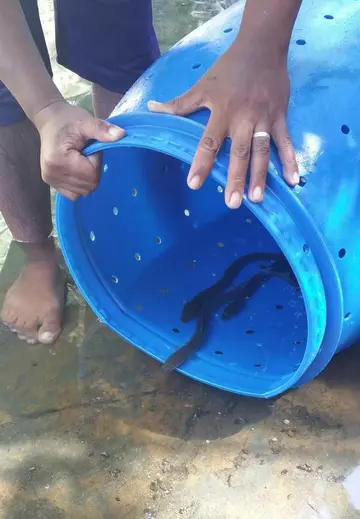
This work was kindly funded by the Darwin Initiative.
Find out more about ZSL’s eel conservation work in the Philippines
